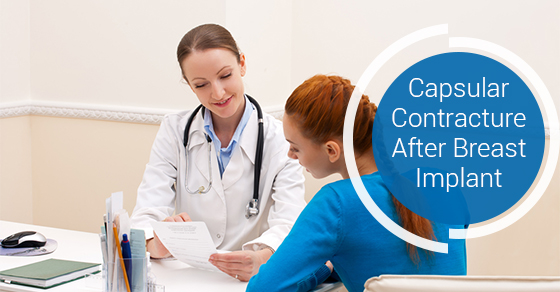5 Symptoms Of Capsular Contracture After Breast Implant
Capsular contracture used to be more common than it is today, however, it is still a complication that can arise after breast augmentation surgery here in Montreal and other developed areas. While the causes of capsular contracture have not been entirely determined, this complication is generally very minor and not one you need to fear too much.

What is Capsular Contracture?
When an implant is inserted, regardless of the type, the body then forms a lining around it in order to protect it, which is normal. It is called a capsule. However, a capsular contraction occurs when the capsule shrinks, which then squeezes the implant and causes the implant to become firm and oddly shaped.
Capsular contracture occurs on one or both sides and can develop any time – either in the weeks after having breast implants (this is most common) or in some cases years later. However for the most part, you do not have to worry so much about the possibility of capsular contracture 6 to 12 months post surgery.
Symptoms of Capsular Contracture:
Symptoms usually occur slowly. They can include:
- The main sign of a capsular contracture is the increasing firmness of the breast.
- The breast implants appear to be high-riding on the chest, much more so than before.
- The breast implant is distorted and may look round or “ball-like.” Visible rippling can also occur.
- The breast implant looks smaller and/or does not move around.
- Breast tightness or pain, especially as firmness increases.
Grades and Treatment:
- Grade I: Your breast is visibly soft (the capsule is not contracted).
- Grade II: Your breast is a little bit firm but looks fine (only mild contracture). Sometimes, no action is necessary in this case.
- Grade III: The breast is hard and looks oddly shaped. For example, it might take on a round shape or the implant might be squeezed upward. Replacement of the implant may be necessary here as well as the removal of the surrounding scar tissue (capsulectomy).
- Grade IV: The breast has the same symptoms as Grade III, but pain is also present.
You’ll need to have a physical exam to determine whether you have developed a capsular contracture. If you think you might have this complication, contact your doctor as soon as possible. Dr. Fouda Neel is always more than happy to discuss any concerns you may have. Contact our team of experts today for more.














